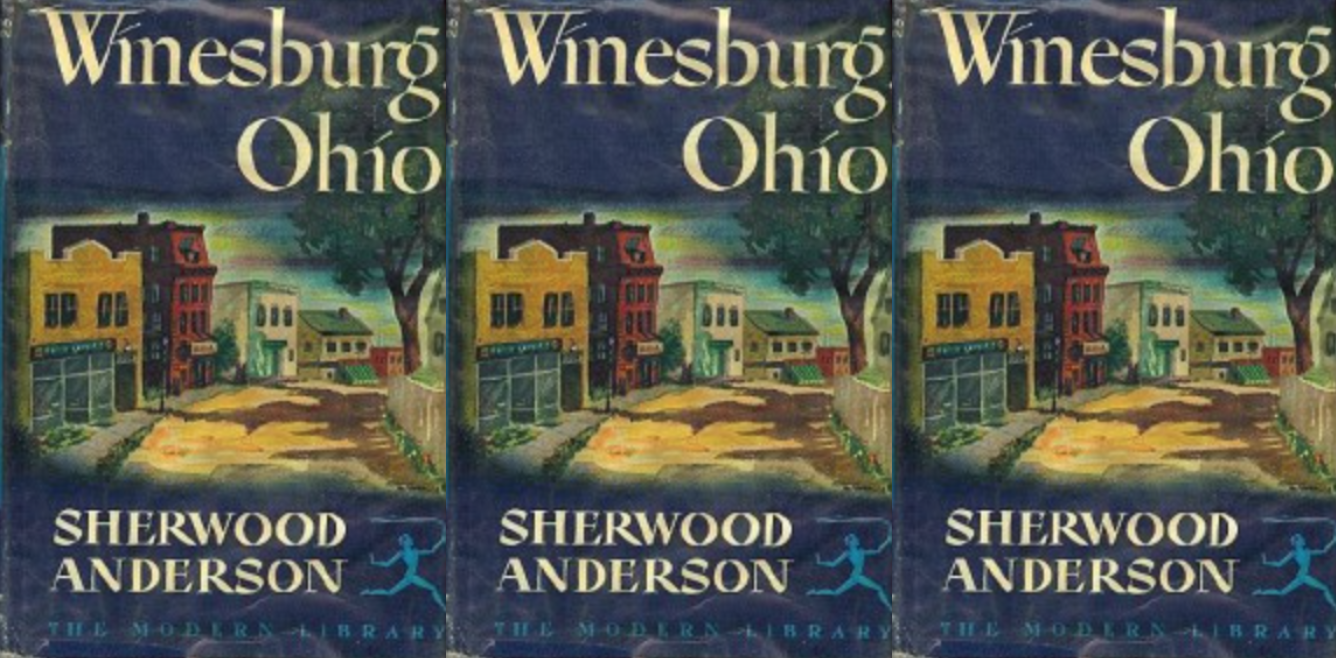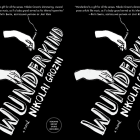Why I Reread Winesburg, Ohio

I’ll go out on a limb, here, as the only person I know who doesn’t love Seinfeld. I watched it quite a bit (in-laws, no cable) and got tickled, sometimes. I’ve been impressed by the way the show appeals to folks across all the demographics I’ve been involved with—from writers to marketers, from paralegals to academics, from the guys who changed my oil to the waitstaff at Bouchon in Napa Valley, everyone around me quoted the show, referred to the show, had an opinion about Kramer’s genius physical comedy and Jerry’s deadpan. And my last name is Pneuman, pronounced in this country NEW-man, just like one of the show’s most comically repulsive recurring characters. Thanks to caller ID, for a long decade I got “Hello, Newman,” every time I reached out to touch someone.
So I respect the show plenty. It’s often funny, it pays homage to comedy gone by, it’s observant, it highlights personal awkwardness. And like the Monty Python movies popular during my junior high and high school years (classics! my friends insist), it’s endlessly quotable when conversation lags. “Hello, Pneuman.” “No soup for you.”
What tires me, and what makes me—lonely?—is terminal irony. All the cleverness and swift movement, unless I’m unpacking it—which I do, as any responsible cultural observer does, I do!—feels more like distraction than even entertainment. Maybe it’s the combination of splitting my life between the South, the Midwest and Northern California? Maybe the urban areas I have chosen have been too earnest? Maybe I’m just square. But it’s the pervasiveness of irony and its less intelligent cousin, sarcasm, that sends me back to Winesburg, Ohio, by Sherwood Anderson. If a less ironic book exists, I haven’t found it. Maybe something German like The Sorrows of Young Werther? The Germans, who pronounce my last name NOY-man.
I first encountered Winesburg when one of my teachers at Indiana University, Tony Ardizzone, created a class on the form of linked stories. It’s a collection of stories or it’s a novel, depending on how you think of things; some of the chapters aren’t even self-contained. They’re character sketches, or histories of the townspeople like the first called “Hands” about Wing Biddlebaum, an inspired teacher who caressed his students too enthusiastically and had to flee the boys’ school where he worked. The sections feel like a town inventory, like the author ran his finger down an old-fashioned phone directory and told everything he knew about each “grotesque”—Doctor Reefy, who writes thoughts on scraps of paper and rolls them into pills, the unfortunate Bentley clan, the confused Kate Swift. The inventory taker is understood to be George Willard, young reporter for the Winesburg Eagle, in whom the townspeople feel compelled to confide. We understand him to imagine the rest.
There are endless reasons to read and reread Winesburg. But what has struck me about my most recent time through this book is the in-depth, fearless, summarized description of emotion. These are tales of peoples’ interior, mostly, and any events are more recounted than dramatized. It’s like spending an evening with a man I know from my hometown who has the dirt on everyone and a gift for bringing it to life, only it’s as if this man is a mindreader, too, with the emotional sensitivity to plumb the complexities of each and every resident. There is very little adherence to “show, don’t tell,” here, as on display with the character of Jesse Bentley in “Godliness”: “As the time passed and he grew to know people better, he began to think of himself as an extraordinary man, one set apart from his fellows. He wanted terribly to make his life a thing of great importance, and as he looked about at his fellow men and saw how like clods they lived it seemed to him that he could not bear to become also such a clod.” Here, and elsewhere, Jesse is treated with a kind of direct understanding that begs sentiment—instead of with ironic distance. The effect, for this reader, is that I feel for him, and for the similar qualities in myself, rather than feeding the derision of those qualities wherever they appear. Every single character in this book, the grotesques, gets this generosity of treatment.
Perhaps I’m just nostalgic. Perhaps irony is the emotional language of our times, when taking yourself too seriously is the ultimate insult. Perhaps irony is an accurate reflection of our pace and well-earned cultural disdain, our need for persistent deflection. Perhaps the (partial) acknowledgment of our constant ridiculousness is how we live with ourselves, but I suspect that what we call levity often masquerades as loathing and does little, actually, to relieve it.
This is Angela’s fourth post for Get Behind the Plough.



